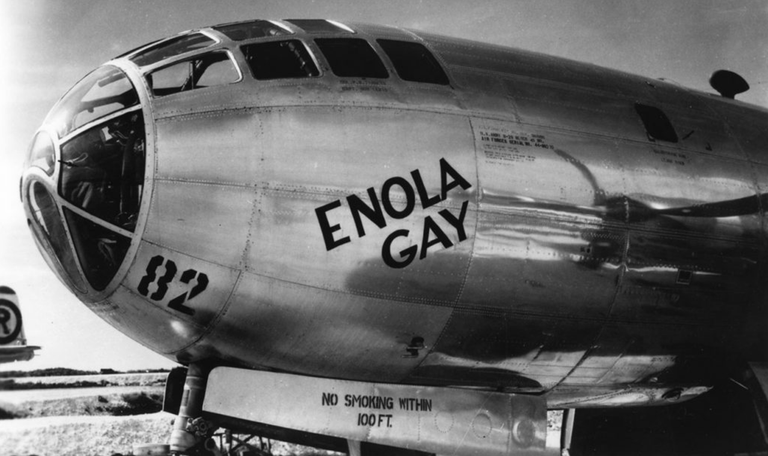The Flight of Judgment: Memoirs of a Bomber

Good afternoon, gentlemen, today I want to talk to you about a great song, but on the other hand it was also a genocide, so this is the story of this song.
So let's start
Enola Gay is the fourth single by the British band Orchestral Manoeuvres in the Dark, released on September 26, 1980 by the subsidiary label of Virgin Records. Enola Gay is also the name of a bomber, the Boeing B 29 Superfortress of the United States Army Air Force that carried the Little Boy, the first atomic bomb to be used in an act of war, on August 6, 1945. The plane was named by the pilot, Colonel Paul Tibbets, in honor of his mother, Enola Gay Tibbets.
The Letter and its Meaning
Andy McCluskey, OMD's frontman and main songwriter, wrote "Enola Gay" as a critique of the use of nuclear weapons and the mass destruction caused by the atomic bomb. Despite the seriousness of the subject matter, the song was created in a cheerful and upbeat musical style, using synthesizers and dance beats characteristic of 1980s synthpop. This contrast reinforces the emotional impact of the lyrics.
My take on “Enola Gay” is that it is a masterpiece that combines pop music with deep historical reflection. The contrast between the upbeat melody and the somber theme is what makes it so impactful: it draws you in with its catchy beat, but forces you to think about the consequences of war and the human decisions behind acts of mass destruction.
The title is subtle, but loaded with meaning. By choosing not to be explicit or overtly condemnatory, the band allows listeners to reflect for themselves, which gives it a special power. Furthermore, I think it is a clever way to show that music can be both a means of entertainment and a platform for moral and social questioning.
Posted Using InLeo Alpha

!LOLZ
!ALIVE
!PIZZA
lolztoken.com
They'd crack each other up.
Credit: gillianpearce
@superr, I sent you an $LOLZ on behalf of apoloo1
(1/2)
thank you so much
!LOLZ
thank you so much
$PIZZA slices delivered:
@apoloo1(1/5) tipped @superr